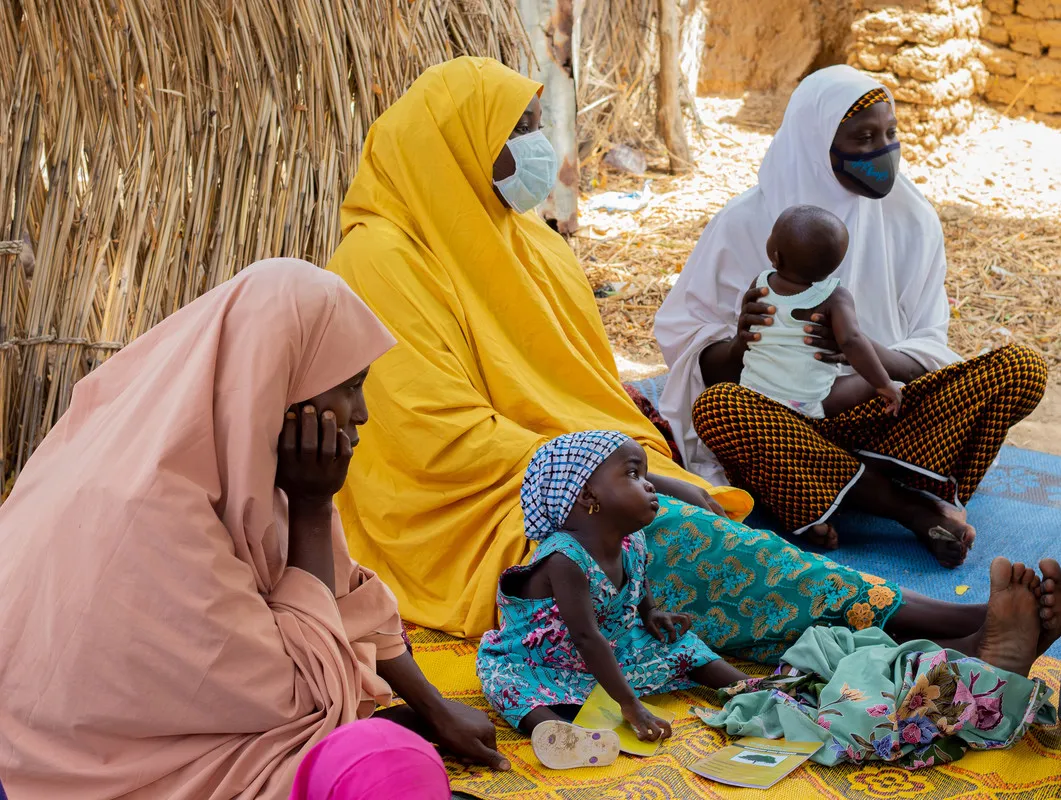The third and final phase retargeted chatbot users and promoted the chatbot’s survey feature.
Turn.io accelerator
During chatbot development, CARE Nigeria was one of twenty organizations selected to participate in a chatbot building accelerator program run by Turn.io in partnership with WhatsApp. The six-week Chat for Impact accelerator took place from October to November 2022 and accelerated CARE Nigeria’s development process. With weekly presentations and best practices for every stage of chatbot building–from content development to testing to marketing and launch–the accelerator provided CARE Nigeria an opportunity to get one-on-one support and learn from peer organizations.
Results
Ads for this project ran from December 6, 2022, through February 24, 2023.
- Phase 1 campaign duration: December 6th, 2022 – Jan 10th, 2023
- Phase 2 campaign duration: February 3rd, 2023 – Feb 26th, 2023
- Phase 3 campaign duration: February 10th, 2023 – Feb 24th, 2023
Notable metrics averaged across the three campaign phases included:
- Total reach for Phase 1 was 1.9 million people and for Phase 2 was 1.7 million people
- In Phase 3 retargeting campaign, CARE Nigeria reached 134,000 users who had already been exposed to chatbot ads. In this phase users were asked to take the in-platform survey.
- The overall conversion rate (CVR) to chat was 8%. This is lower than CARE’s benchmark average of 15% which was modeled on a mix of internal metrics and data shared with CARE by peer organizations, since CARE Nigeria had limited experience with chatbots prior to this campaign.
- CARE Nigeria garnered a total of 95,400 post engagements and had an overall share rate of 0.037%, which is higher than the benchmark.
- Yobe state, where CARE Nigeria’s offline programming is targeted, saw the highest engagement rate (39.5%) compared to other regions
“The chatbot on WhatsApp provided us with a lot more reach than we were ever able to imagine previously. We needed to build the service to be able to reach key stakeholders who influence decision-making within family households. We were able to do that by reaching not only mothers, but also religious and traditional leaders,” said Habeeb Sulaiman, CARE Nigeria’s Communication and Advocacy Officer.
Results from the chatbot and its user engagement include:
- A total of 15,000 conversations were started in the CARE Nigeria chatbot
- Nearly 2,700 users opted in to receive future immunization-related messaging from the CARE country office
- Conversation lengths averaged around 9.7 messages per user, +70% longer than the conversation length seen in CARE Bangladesh’s chatbot.
So what did users think about the chatbot?
CARE Nigeria’s in-platform survey yielded important insights into how users perceived the chatbot service. The survey had a completion rate of 43.9%, meaning that of the 556 users who accessed the survey, 244 fully completed the survey.
Upon analyzing the results, CARE Nigeria found that:
- 76.6% of people reported that they would recommend this service to others
- 68% of respondents rated the chatbot 4 or more stars out of 5
- 60% of respondents expressed an increased understanding about immunization importance through using the chat service
What’s next?
CARE Nigeria is keen on continuing their chatbot programming, and addressing the limitations of their current service. “The specific community we built the chatbot for in Yobe State, Nigeria includes a low-literate population whose primary language is Hausa, not English,” said Habeeb. “By translating the current content to Hausa, we believe we will have a lot more reach, impact, and engagement in the community.”
The team also hopes to expand the information the chatbot provides by adding diversified content subject areas such as gender norms, nutrition, and food insecurity.



